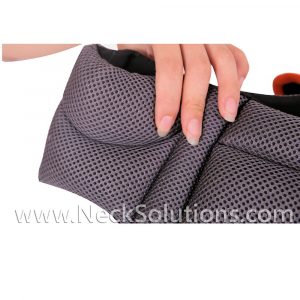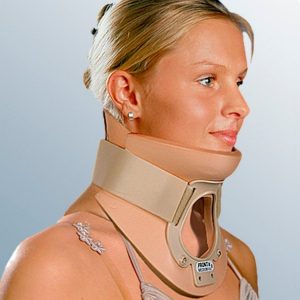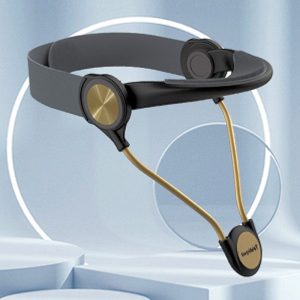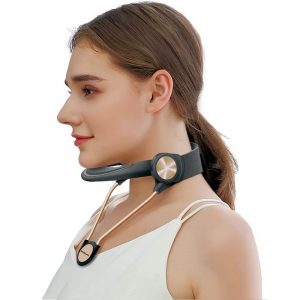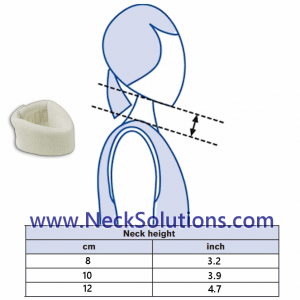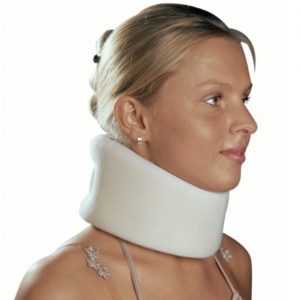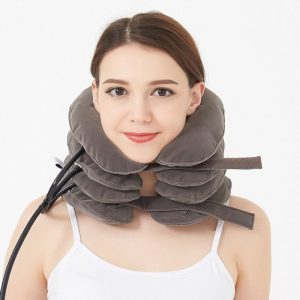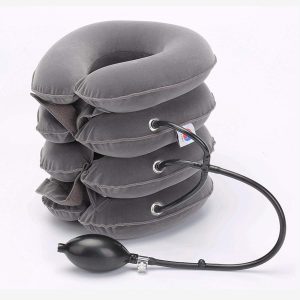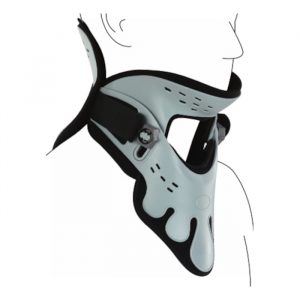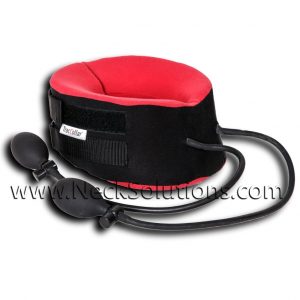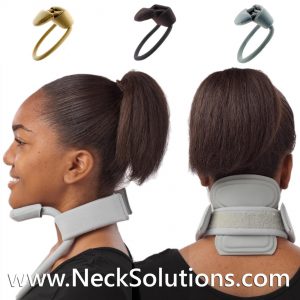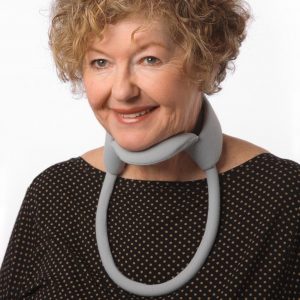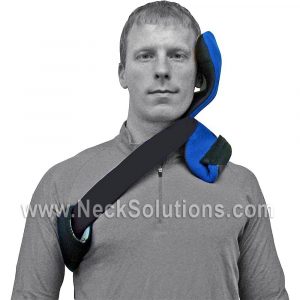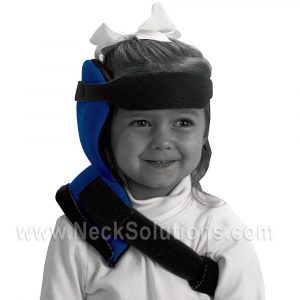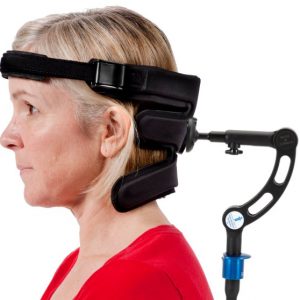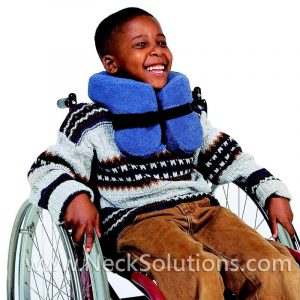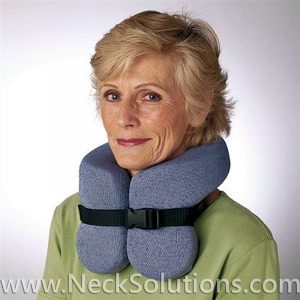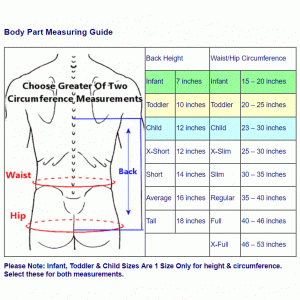Neck Supports & Neck Braces Can Help With Pain Relief, Assist Healing And May Prevent Further Injury
 Neck supports are often used for individuals who have muscular weakness or pain, where rotation of the head to either side or even maintaining the head up presents difficulty. Neck supports can assist with restrictions regarding head mobility, and this may be a contributing factor for stiff neck muscles, poor head posture, neck posture as well as significant pain.
Neck supports are often used for individuals who have muscular weakness or pain, where rotation of the head to either side or even maintaining the head up presents difficulty. Neck supports can assist with restrictions regarding head mobility, and this may be a contributing factor for stiff neck muscles, poor head posture, neck posture as well as significant pain.
Weakness of neck muscles relates to the ability to control head motion as well as muscle tension, resulting in pain and further impairment of function, leading to additional pain as well as stress and anxiety. Emotionally distressed states may raise muscular tone, complicating the recovery process.
Weak neck muscles, muscle degeneration and already injured muscular tissues may require the use of neck supports because they are more susceptible regarding injury complications should a sudden motion or unexpected jerking type motion affect the neck, which may cause tears in muscle and/or ligament tissues.
In severe cases, the highly sensitive spinal cord and/or spinal bones can be damaged with possible severe consequences. This type of injury can be a consequence from stretching tissues beyond normal limitations as seen with the severe whipping motions seen in some neck injuries, for which various types of neck supports have traditionally been employed.
Neck Supports & Back Support Products
Often as a result of auto accidents, a whiplash type injury also may occur in martial arts or even when someone is moved from sitting or lying down positions without consideration for supporting the neck. For some with weak or damaged muscles and/or ligaments, neck supports can help because even a slight jerk of the head can cause a torn muscle or neck strain. A neck injury can be very painful, especially when turning the head, raising and lowering in and out of bed or rolling over when in a lying position.
Neck supports can be part of an important managing of weak neck muscles as well as prevention of complicating factors. Back supports are very popular, some offering full spinal support and great posture correction. Many of these supports also easily transfers from your car to you favorite office chair. The increased support for your neck and back can help keep you in better posture and more alert when driving.
So, car supports enable you to rest with better posture and more comfort, avoiding neck stiffness when you arrive at you destination. However, the support should be securely in place before driving to avoid any distraction, and neck supports should be analyzed to make sure the chance of injury is not increased.
Wearing Neck Supports
Wearing neck supports is an effective method of holding up the head if this is difficult. People with advanced neck weakness should wear neck supports when walking, riding in the car or being transferred from one sitting position to another to protect against injury from sudden motion. Using a support which holds the head up as you walk allows better vision, reducing injury risks associated with falls. Torticollis is another condition where proper use of neck supports is essential.
To promote comfortable use, alternating among the different neck supports may be a solution to reducing pressure points on the skin of long-term users. We offer many varieties of well constructed supports that are soft, flexible and lightweight. Some of these provide only minimal support for persons with advanced neck muscle weakness, while others use air pumps to provide a custom level of support on all sides of the neck. The headmaster collar is a support which has a low user profile offering a chin support that employs padding for comfort and tubular design which is open, reducing heat build-up. A comfortable fit is necessary to avoid any neck constriction.
Neck Supports & Posture
Improving head and neck posture and promoting mobility are important. Good body alignment when sitting can promote an upright head position and use of back support pillows can help align a slumped posture and prevent your head and shoulders from slouching forward. In a seating system control depends heavily on the position of the pelvis and trunk. If sitting in a high back chair, even placing a rolled towel behind the neck can improve head posture and helps to prevent or alleviate discomfort in the neck. Additionally, if the armrests are not adjustable, placing a pillow under each arm or on top of each armrest of the chair may help promote an upright head position and provide extra comfort when sitting for a long time. Proper alignment of the head, neck, and body allows the lungs to expand for better breathing.
When sleeping, prevent resting on any pillow that’s too high as well as way too low. This may not just stress the neck, but can result in diminished sleeping during the night. We have a wide selection of supportive neck pillows, nonetheless, even a rolled bath towel positioned beneath the neck together with the head resting on a low pillow can provide essential comfort and support. Those who have difficulty trying to keep their head up-right may consider lying down in bed several times during the day to relieve stress on neck muscles.
Specific exercises and neck stretches helps with promoting head mobility and range of motion, minimizes stiff neck symptoms, helping in prevention and alleviation of neck pain. If you have a recent injury, prior surgery or advanced muscle weakness, consulting a health care professional is prudent for evaluation and specific suggestions regarding neck supports.
What Is The Best Bedtime Cervical Collar?
This is a question that we get often. It is not recommended to sleep with a cervical collar, however, many find this provides some relief as well as prevents excessive neck motion and gives a sense of comfort and security.
Due to certain medical conditions, a doctor may prescribe a rigid type collar for use at night. These instructions should always be followed. However, most are looking for a soft, comfortable collar. In looking for the best bedtime cervical collar; it should be soft, but not too soft, supportive, but not rigid, and comfortable enough to where it will maintain warmth, yet not overheat. Wearing a neck brace for sleeping is not a substitute for a proper cervical pillow.

